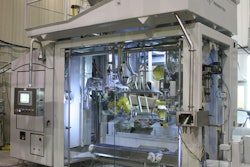
A 2012 change in the U.S. Food and Drug Administration’s powers that was probably best known for its renewal and expansion of “user fees” also contained some important expansions in FDA enforcement powers over drugs. The Food and Drug Administration Safety and Innovation Act of 2012 made headlines because it required applicants for drug, medical device, and biological approvals to pay new or expanded fees along with those applications, but there was more to the law than that. There were also important provisions applying to all drug facilities.
One new provision allows FDA to detain drugs it thinks might be adulterated or misbranded, and another declares drugs to be “adulterated” if the persons responsible for the facility where they are made have delayed, denied, limited, or refused an FDA inspection.
New drug detention provision
Under the new detention provision, if the FDA inspector in a drug facility “has reason to believe” that a drug is adulterated or misbranded, FDA can issue the detention order. The product need not be suspected of being dangerous, just out of compliance, for FDA to detain the product. The detention provision has to be fleshed out in implementing regulations before it’s effective, and FDA proposed the implementing regulations on July 15.
The detention would be temporary (20 days, plus a possible additional 10 days if FDA thinks it’s needed), and the affected company gets a hearing to try to talk FDA out of it. But the key is that FDA can quickly do this itself, rather than have to convince a judge to issue an injunction order, and can thereby give itself time to figure out what it wants to do, such as ask for a recall, or file a court injunction or seizure action. FDA already has similar powers over foods, medical devices, and tobacco.
New drug inspections provision
The new inspections provision prohibits not just outright refusals of inspections, but also what FDA considers related improper gamesmanship, specifically if the owner, operator, or agent of a factory, warehouse, or establishment “delays, denies, or limits an inspection, or refuses to permit entry or inspection.”
It’s long been the law that refusing an inspection or refusing to permit access to or copying of records in a drug facility is prohibited, and committing those prohibited acts subjects the facility and responsible individuals to enforcement actions. This new provision would plunk some consequences of those actions—and others—directly on the product itself, declaring the product adulterated, therefore unlawful, therefore subject to enforcement actions including, now, administrative detention.
Guidance about inspections a recipe for controversy?
Congress also ordered FDA to issue some industry guidance about what they will consider actions that constitute “delay, denial, or limiting of an inspection,” and they came out with that guidance on July 12.
It describes specific scenarios as delay, such as when FDA tries to be nice and agree to a start date to an inspection (which FDA isn’t required to do) but the company won’t agree to the proposed date and “does not give a reasonable explanation for its failure to do so,” or tries to postpone an agreed date without a good reason, or fails to respond to contacts.
Once an inspection has begun, FDA will consider as delaying a company’s failure to allow FDA access to an area when requested, or leaving the inspector in a conference room “without access to necessary documentation or responsible individuals for an unreasonable period of time that interferes with the investigator’s ability to complete the investigation.” (Sounds like something FDA’s has experienced before.)
If a facility “orders the discontinuation of all manufacturing for the duration of the FDA inspection without a reasonable explanation,” FDA could consider that “limiting” of the inspection, says the guidance document.
Now, look, this could all be a recipe for more squabbles. That’s because any time a law, regulation, or guidance document says actions or timeframes have to be “reasonable,” which is a vague and general term, the prospect arises for arguments over whether someone’s actions are or not reasonable. This guidance document refers to reasonableness a lot. Let the games begin.
Sneaky re photos?
There’s even something sneaky embedded in the FDA guidance document that isn’t obvious unless you are aware of the existence of an age-old debate over FDA inspection powers.
FDA pretty clearly has the power to come into a drug facility and inspect it, but the provision of the law giving them that power does not say it can take photographs. It’s been an issue debated for many years whether FDA has that power as a natural outgrowth of its powers to inspect, FDA saying it does, industry saying it doesn’t, and courts have never squarely said they do have the power in a situation when the manufacturer tells FDA not to take photos. (If the facility says “Yes,” there’s no legal issue about whether FDA has the power to do it.) When FDA tries to take pictures, few companies want to stand up and tell them they can’t, and many don’t even realize they can say “No,” even though lots of us lawyer types think they can. So FDA usually gets its pictures within facilities. Those photos are often happy little full-color evidence weapons FDA uses against the manufacturer.
Now, FDA knows darn well that it’s not clear that they have legal authority to insist on taking photos in a facility. (Many years ago, in fact, responding to my boss’s assertion that FDA couldn’t photograph, an FDA official wrote a jokey letter asserting that the law allowed FDA to employ miniature remote-controlled helicopters inside facilities to help them inspect—looking back, they sound like drones, and I wonder if FDA maybe wouldn’t think that’s a joke anymore.)
Anyway, FDA put a statement in the guidance, saying that now they’ll consider a drug facility that limits FDA’s taking of photos to have “limited” the inspection if the FDA investigator thinks the photos are “necessary to effectively conduct that particular inspection.” And if the facility is found to have “limited” the inspection, the new provision in the law makes the drug ‘adulterated’ and subject to detention and other FDA remedies.
Well, it will be interesting to see if a scenario can arise to test this new assertion by FDA, in which there’s nothing wrong with the drug or facility, except the refusal to allow photos. In other words, if the refusal to allow photos is the only basis on which the FDA considers the drugs adulterated, then the facility could put the matter before a court to resolve perhaps directly and once and for all whether photos are permitted as part of FDA’s inspectional powers.





















